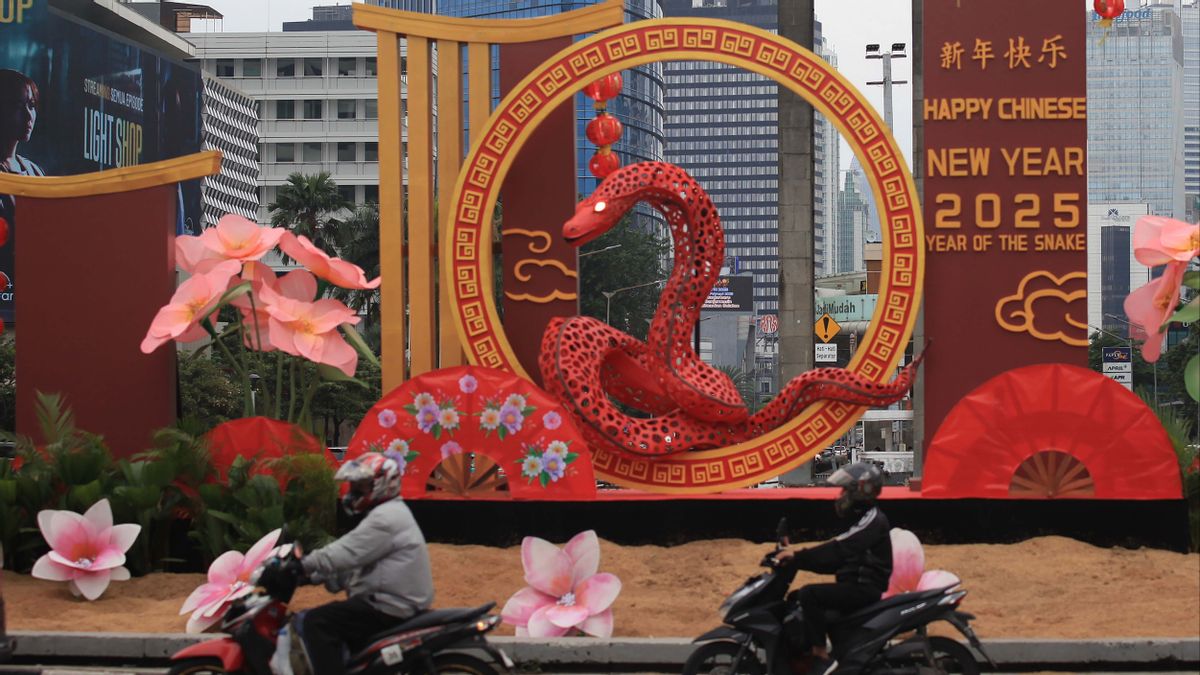
JAKARTA The term YONO has recently been widely used on social media and in everyday life. The emergence of this term is motivated by the desire to quit the consumptive culture that has dominated modern society.
YONO is an acronym for You Only Need One, a new lifestyle philosophy that invites individuals to re-evaluate consumption patterns. YONO's lifestyle is believed to replace YOLO principles that have the potential to endanger the individual economy.
Prior to this, YOLO or You Only Live Once's lifestyle was a role model for many people, especially the millennial generation, namely those born in the 1980 to 1997 period. The YOLO trend is described as a free lifestyle and only prioritizes temporary pleasure. For example buying goods impulsively without thinking about future functions.
This can not only have a negative impact on finances, but also the mental health of individuals, even affecting the environment. Financial planner Prita Ghozie said that YOLO's mindset had an impact on Indonesia's millennial generation from an economic and psychological perspective.
The trend that arises is that the millennial generation will become consumptive and prioritize spending on activities that are experienced. For example, travelling, experience buying, and others," said Prita.
But in recent weeks, the term YONO has emerged which is popular among the public. He said, this trend is to replace YOLO's lifestyle, which according to many experts has a negative impact.
YONO's movement actually started from a global crisis situation of at least a year ago. The public begins to realize that a consumptive lifestyle is no longer relevant to life now.
Increasingly uncertain economic conditions force people to rack their brains more using as much money as possible, including focusing on the most essential needs.
The term YONO appears as a philosophy that offers a new perspective in responding to ownership and consumption. Simply put, this philosophy teaches people that in life, what is really needed is one quality thing rather than having many things but not important.
YONO's philosophy does not only talk about limiting the ownership of goods quantitatively. The most important thing in this trend is choosing quality goods. That means, it's better to have one higher quality item that lasts longer than some quality goods that are quickly damaged.
YONO's concept is also said to help Generation Z be wiser in managing finances, by simply buying the goods that are really needed.
But YONO's philosophy is not solely about saving expenses or consumption patterns. According to some circles, this philosophy invites individuals to rethink people's relationships with material, evaluate what is truly important in life, and how our consumption choices have an impact on the environment and mental well-being.
So broadly, YONO's philosophy includes thoughts about sustainability, environmental impacts, and how we can live more meaningfully with less ownership.
As mentioned earlier, the YOLO trend invites people to "live once" and enjoy every moment without thinking too much about long-term consequences. This philosophy encourages spontaneity, risk-taking, and instantaneous pleasure. No wonder YOLO followers tend to prioritize instantaneous experiences and pleasure.
Meanwhile, YONO appeared with a more measurable and sustainable approach. YONO's influencers are encouraged to make wise choices, both in terms of material consumption and life decisions.
There are fundamental differences between these two philosophys. YOLO followers generally spend money for a moment of satisfaction and ignore long-term financial planning, while YONO adherents do. They tend to invest in quality goods that last longer and allocate their resources more strategically.
In terms of environmental impacts, these two philosophys also have a contrasting impact. If YOLO's lifestyle often produces a larger carbon footprint due to uncontrolled consumption patterns and lack of consideration for environmental impacts, then the YONO trend, with its emphasis on minimal and sustainable consumption, tends to result in a much smaller environmental impact.
SEE ALSO:
Psychosocial and cultural observer Endang Mariani said that the trend of YONO can have both positive and negative impacts. By adhering to this trend, according to Endang, the consumptive culture that has been carried out by many people can be reduced. Thus, people can be more frugal and reduce impulsive spending.
People who experience financial stress are also reduced, thereby improving mental well-being.
"We are no longer chasing trends and are ambitious to show off wealth, but foster social solidarity," he explained.
This can reduce social jealousy that often arises, due to lifestyle inequalities, especially when a person feels left behind in pursuing trends. With that, people will tend to appreciate each other's existence more than just pursuing material.
But on the other hand, there is a potential negative impact if the YONO trend is carried out together for a long time. This philosophy has the potential to make brands reduce the production of goods, because people are no longer consumptive. The circulation of money as well, said Endang, could decrease and weaken economic growth.
"Positive and negative impacts must exist, depending on how we manage them. How can we change the negative impact to positive," he concluded.
The English, Chinese, Japanese, Arabic, and French versions are automatically generated by the AI. So there may still be inaccuracies in translating, please always see Indonesian as our main language. (system supported by DigitalSiber.id)
















